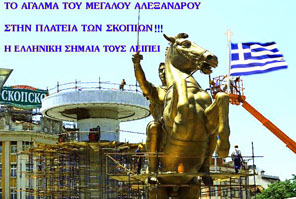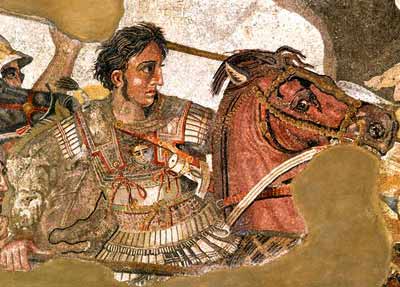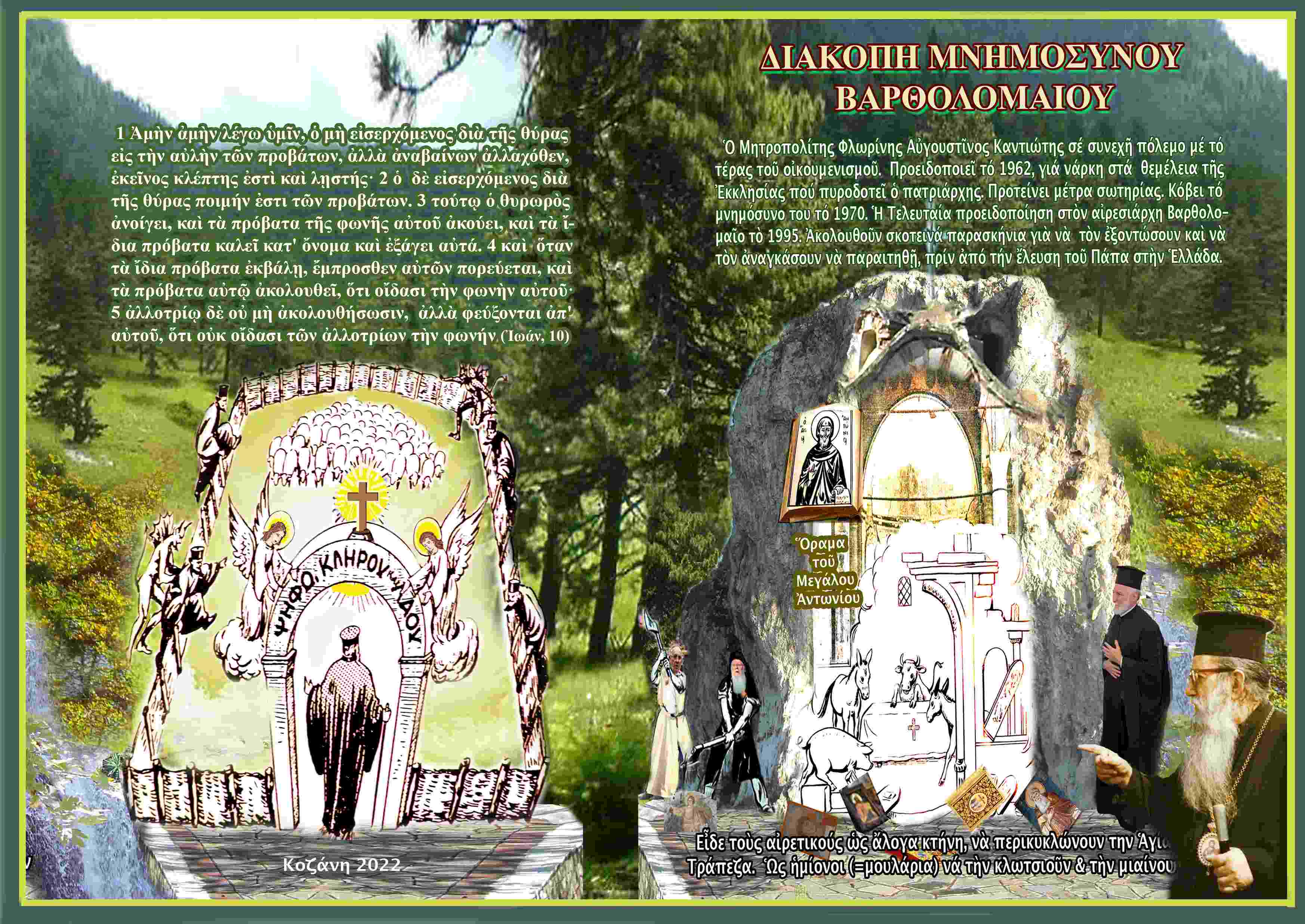ΣΧΕΔΙΑ ΤΩΝ ΣΚΟΠΙΑΝΩΝ
 Ιούν 24th, 2011 |
Ιούν 24th, 2011 |  Filed under: ΜΗΝΥΜ. ΠΑΡΑΛ. ΠΡΟΩΘ.
Filed under: ΜΗΝΥΜ. ΠΑΡΑΛ. ΠΡΟΩΘ.
ΠΩΣ ΟΙ ΣΚΟΠΙΑΝΟΙ
ΟΝΕΙΡΕΥΟΝΤΑΙ ΤΗΝ ΜΑΚΕΔΟΝΙΑ!!!
Το βίντεο είναι των σκοπιανών
________
__________
Τι ρόλο παίζει στην Θεσσαλονίκη ο σκοπιανός επίσκοπος Αχρίδος Ιωάννης, που συμπαθεί ιδιαιτέρως τον Πάπα Βενέδικτο και τρέχει με τον Πατριάρχη του στις εκδηλώσεις των παπικών;
Γιατί έχει έδρα την Θεσσαλονίκη ενώ μπορεί να βρίσκεται σε Σερβικό έδαφος κοντά στην Μητρόπολή του; Ποίοι και γιατί τον έστειλαν;
Έχει φίλο τον Πάπα και είναι ο χαϊδεμένος του πατριάρχη της Σερβίας Ειρηναίου και της παρέας του και το παίζει πτωχός και καταδιωκόμενος; Δεν φοβάται τον Θεό που εκμεταλλεύεται το φιλότιμο των Ελλήνων;
______
Alexander and the Macedonian heritage
- Hellenic Electronic Center –Ελληνικό Ηλεκτρονικό Κέντρο (HEC)
- A Non-Profit Organization Registered in the US (Μη-κερδοσκοπικός οργανισμός εγγεγραμμένος στις ΗΠΑ)
- with 44,000 Hellenes as members and 36 Hellenic (με 44.000 Έλληνες, ως μέλη και 36 Ελληνικό)
- associations in the US and abroad (ενώσεις στις ΗΠΑ και στο εξωτερικό)
- June 22 ,2011
 The June 22 piece under the world news section makes reference to Skopje’s claims on Macedonian history and states that Greece «also claims inheritance of the historical figure» in reference to the building of a statue in Skopje of Alexander the Great. This is an absurd statement that implies a dispute on historical fact. Alexander and the Macedonian heritage belong exclusively to the Greek nation. There is no dispute about this according to serious scholars, historians, and archeologists who have over the course of time examined the firsthand evidence from a non biased and objective perspective.
The June 22 piece under the world news section makes reference to Skopje’s claims on Macedonian history and states that Greece «also claims inheritance of the historical figure» in reference to the building of a statue in Skopje of Alexander the Great. This is an absurd statement that implies a dispute on historical fact. Alexander and the Macedonian heritage belong exclusively to the Greek nation. There is no dispute about this according to serious scholars, historians, and archeologists who have over the course of time examined the firsthand evidence from a non biased and objective perspective.
Tensions with Greece have been exacerbated and continue to worsen specifically as a result of unprovoked aggressions such as the building of this statue. The government in Skopje bears direct responsibility for provocations against Greece as well as European authorities which as the article notes is warning Skopje about its actions. Greece has over a period of time extended good will toward Skopje by assisting it economically and establishing diplomatic recognition. In turn, Skopje continues to provoke Greece. Very clearly, Skopje should not be accepted in either the European Union or NATO.
It is very clearly an aggressive and pariah state, and an undemocratic one at that. Democratic countries do not covet the territory of neighboring countries nor do they distort serious history for the purposes of disseminating propaganda for the aim of establishing themselves with a history and heritage that belongs exclusively to someone else. At this point in time when the Balkan countries are preparing to move forward, Skopje alone continues to ignite tensions while keeping alive its aggressive tendencies onGreek territory. Skopje is the greatest single cause of instability, tension, and hatred in the Balkan
peninsula today.
Theodoros Karakostas
HEC EXECUTIVE COMMITTEE
Macedonia Showered with Ancient Heroes Statues, Criticism
World | June 22, 2011, Wednesday
A massive statue of Alexander the Great on his horse Bucephalus stands on its position on a pedestal on Macedonia Square, the central square of the capital of Skopje, The Former Yugoslav Republic of Macedonia, 21 June 2011. Photo by EPA/’BGNES
Two new statues of Philip II of Macedon were opened Tuesday, one in Skopje and one in Bitola, as the Balkan country’s government continues its ambitious renovation plan.
Even though Philip II was «outshone» by his son Alexander the Great, whose gigantic monument was opened later the same day, people flocked to see the father’s new statues, too.
On Tuesday, the controversial 13-meter high statue depicting Alexander the Great on horseback was officially opened in Skopje, adding fuel to the conflict with Greece, which also claims inheritance of the historical figure.
On Monday, EU Enlargement Commissioner Stefan Fule said that if Macedonia continues to take actions perceived by Greece as «provocations» and fails to make faster progress in its reforms, the country could lose its EU candidate status.
Meanwhile, Facebook users have started a peculiar initiative for the renaming of Skopje and Bitolia as Alexandria and Heraklea respectively in order to further emphasize what Macedonians perceive as their «ancient» history.
Since becoming an independent state in 1991, the ex-Yugoslav republic of Macedonia has had a number of protracted historical disputes with neighboring Bulgaria and Greece, in particular about the Macedonian or non-Macedonian nationality of a number of historical figures. Among them are Alexander the Great and Tsar Samuil (997-1014), whom Bulgarians recognize as one of their great Medieval rulers.
–>
Tags: Philip II of Macedon, Alexander the Great, macedonia, greece, Skopje, bitolia, statues
» Subscribe to receive alerts by email for any of these keywords.
__________________________
Ο ΜΕΓΑΣ ΑΛΕΞΑΝΔΡΟΣ ΚΑΙ ΟΙ ΣΛΑBΟΜΑΚΕΔΟΝΕΣ
 Ένα λαμπρό υπόδειγμα ρητορικής και πολιτικής από πρόσφατη συνεδρίαση της ΓΣ των Ηνωμένων Εθνών, που έκανε τη διεθνή κοινότητα να χαμογελάσει: Ο λόγος του Έλληνα μόνιμου αντιπροσώπου στον ΟΗΕ.
Ένα λαμπρό υπόδειγμα ρητορικής και πολιτικής από πρόσφατη συνεδρίαση της ΓΣ των Ηνωμένων Εθνών, που έκανε τη διεθνή κοινότητα να χαμογελάσει: Ο λόγος του Έλληνα μόνιμου αντιπροσώπου στον ΟΗΕ.
«Πριν ξεκινήσω, θέλω να σας πω κάτι για τον Μέγα Αλέξανδρο. Όταν δάμασε τον Βουκεφάλα, κατά τον γυρισμό του και περνώντας τον Αξιό και βλέποντας το νερό, σκέφτηκε ότι ήταν μια καλή ευκαιρία για μπάνιο. Έβγαλε λοιπόν τα ρούχα του, τα ακούμπησε στον βράχο και μπήκε στο νερό. Όταν βγήκε και θέλησε να ντυθεί, τα ρούχα του είχαν εξαφανιστεί. Τα είχε κλέψει ένας Σλάβος της Μακεδονίας.»
Τότε πετάχτηκε οργισμένος ο Σλαβομακεδόνας εκπρόσωπος της ΠΓΔΜ κι άρχισε να φωνάζει «Τι είναι αυτά που λες; Οι Σλάβοι δεν ήταν εκεί, τότε.»
Οπότε ο Έλληνας εκπρόσωπος χαμογέλασε και είπε: «Τώρα που το ξεκαθαρίσαμε αυτό, μπορώ να ξεκινήσω την ομιλία μου…»!
Ο συγκεκριμένος διάλογος είναι πέρα για πέρα αληθινός και είναι ένα σαφέστατο δείγμα του δημιουργικού τρόπου σκέψης των Ελλήνων.
….ξίφει τον δεσμόν λελυσθε…. Αλέξανδρος ο Μέγας


Add A Comment
You must be logged in to post a comment.